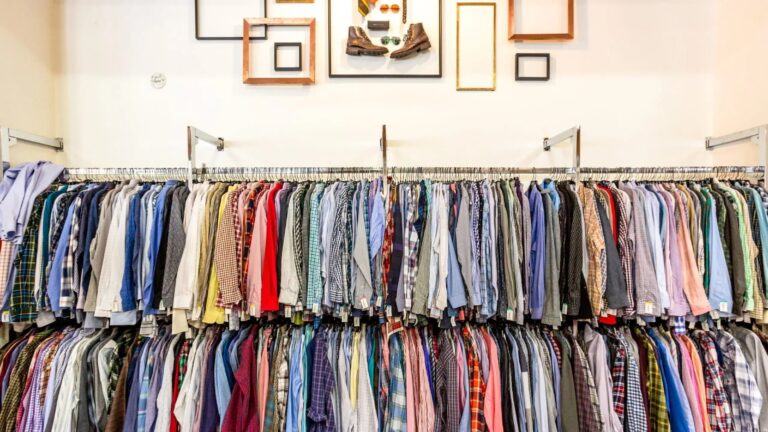This article is included in the following additional categories:
Fashion for Good has announced a new textile circulation project that uses automated sorting technology to assess clothing items’ potential for the resale market.
An 18-month initiative, “Sorting for Circularity Europe: Rewear Project” will use AI to collect product information such as color, style and quality to help sorters efficiently classify used clothing based on product data. This data collection will help ensure textiles achieve their full value in local, European and export resale markets. The project will specifically focus on textile flows in Lithuania, the Netherlands, Poland and Spain.
The project will help scale up the ‘Circular Sorting’ framework to target the root causes of the fashion industry’s waste burden – in particular the export of large amounts of textile waste to landfills in regions that lack the necessary recycling infrastructure to process it. The project findings will be shared with a report and an accompanying roadmap for future investment decisions in the textile recycling and resale market.
The project is supported by funding from several brand partners, including Adidas, Levi Strauss and Complix, and will also involve industrial textile sorters Erdotex, ModaRe, Humana People to People Baltic and Wtorpol.
Addressing growing textile waste and potential revenues in the circular market
Fashion for Good, a global initiative that aims to make the fashion industry more sustainable, is already conducting research to determine the potential for textile reuse and recycling, and says post-consumer textile exports from the European Union have tripled in the past 20 years, reaching nearly 1.7 million tonnes in 2019.
Fashion for Good found that 74% of 494,000 tonnes of low-value post-consumer textiles could be immediately recycled in six European countries by the time one of its projects was completed in 2022. Additionally, the organization found that reintroducing these sorted and recycled textiles back into the value chain could generate an additional $80 million annually. According to ThredUp, a leading online second-hand fashion retailer, the textile resale market is expected to be worth $350 billion by 2027.
As the potential for making textiles more circular is growing, this new project could help find ways to efficiently sort collected textiles and re-enter the market instead of sending them to landfills.
“With this project we want to expose the myths and half-truths about dumping post-consumer waste and save these garments by understanding the processes and paths they take,” said Marieke Coomans-Kokkerink, head of sustainability at Erdotex. “That way we can reach true circularity.”


